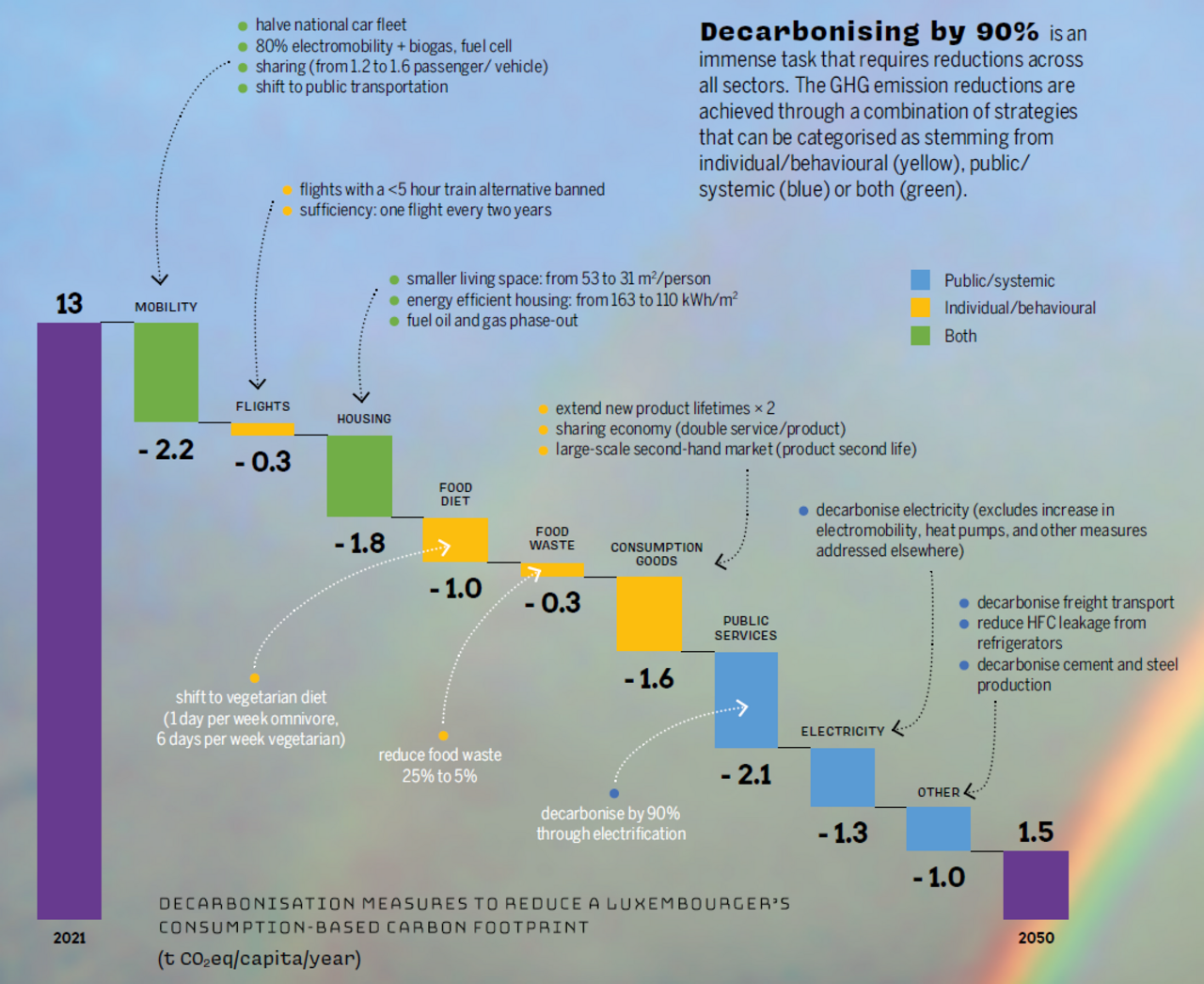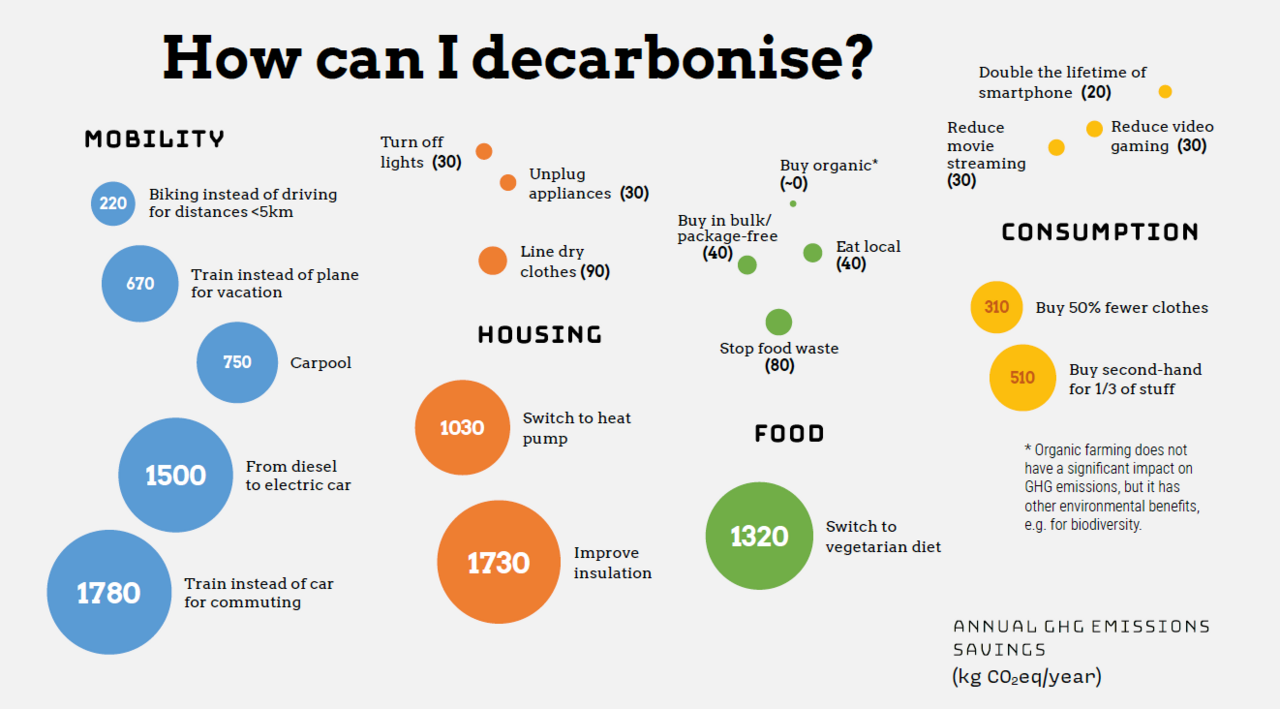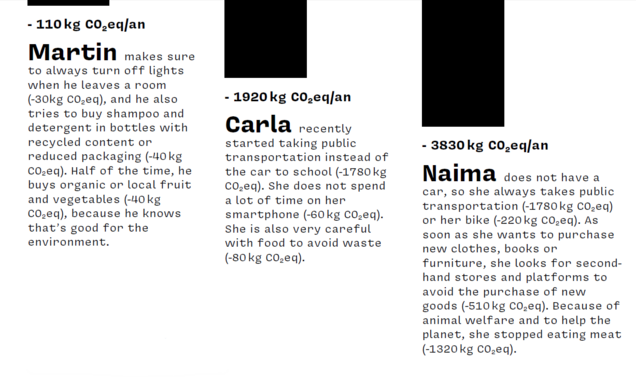
Decarbonisation
If we rely solely on individual/behavioural change, we fall short of our target and continue emitting 5.9 t CO2eq/capita/year.
Similarly, if we implement only systemic changes, we are left with emissions of 4.7 t CO2eq/capita/year.
The two drivers of change - individuals and government - are thus equally called to action.
What about carbon uptake or sequestration?
What do we do with the remaining emissions of 1.5 t CO2eq/capita/year in 2050? We need to significantly improve our carbon sequestration efforts, such as through re-forestation and improved management of agricultural soils. Two other technologies may help us get to net zero emissions. Carbon capture and storage refers to capturing CO2 emitted from industrial sources and storing it. Direct air capture, which remains very expensive, refers to capturing CO2 from the air and storing it.


How can I decarbonise?
It is important that we know at least approximately how impactful different actions are. This kind of knowledge is called carbon numeracy. Without it, we might allocate our effort inefficiently and end up doing too little of actions that are very impactful, such as using public transportation, improving home insulation and switching to heat pumps, and eating less meat. Consider that Martin, in our example above, may believe he is doing a lot more in fighting climate change and protecting the environment than he actually is.
What else can I do?
Protest, rally, and vote as soon as you're old enough!
Make your voice heard, go to climate rallies, and speak to your local, national, and EU politicians. Without changes to government regulations, we won't be able to decarbonize. Governments create the right incentives for industry decarbonization, expansion of public transportation, energy efficiency improvements in buildings, and reduction of GHG emissions from agriculture.
You can seek inspiration from Greta Thunberg, who inspired the global Fridays for Future movement through her weekly school strikes in front of the Swedish Parliament. Make your voice heard!
Educate yourself and your friends about climate change and what you can do to decarbonize.
It's important that you know your carbon footprint and the reduction in GHG emissions that different actions can achieve. Without this knowledge, you may put too much effort into a low-impact action while putting too little effort into a high-impact action. Keep this brochure handy and check out our website for updates, so you can keep yourself and your friends informed. And speak up when you see wasteful behavior, and inspire others to do their part to mitigate climate change.

